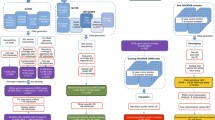Abstract
Heat shock proteins act as molecular chaperones, assist in peptide maturation, and transport nascent peptides across membranes. One commonly studied single nucleotide polymorphism (SNP) for one of the proteins is HSPA1B (+A1538G). However, several studies of this polymorphism have failed to achieve Hardy–Weinberg equilibrium (HWE) for their sample. We compared various published procedures for analyzing the HSPA1B +A1538G SNP and report reasons for HWE discrepancies. Samples from 141 apparently healthy, physically active, volunteers (99 men and 42 women) were analyzed. The first protocol, initially described by Schröder et al., resulted in a genotypic distribution of 22 GG (15.6%), 119 AG (84.4%), and 0 AA; results were confirmed by reanalysis and sequencing. Two other published protocols, one described by Klausz et al. and another by Fekete et al., were used to confirm these results: both resulted in 22 GG (15.6%), 46 AA (32.6%), and 73 AG (51.7%). Additionally, the results were within HWE and confirmed by sequence analysis. Of the original 119 subjects genotyped as AG by the Schröder protocol, 46 of those were confirmed as AA with the Klausz and Fekete methods. Mixing primers from the Schröder and Klausz protocol resulted in 100% concordance with the data generated by the Klausz and Fekete protocols. Some published data on HSP genotyping deviate from HWE; thus, primers used for analyzing these highly homologous genes must be carefully considered. Our results highlight the importance of reinvestigating data when HWE is not achieved for the HSPA1B, or another, polymorphism.


Similar content being viewed by others
References
Balog A, Gyulai Z et al (2005) Polymorphism of the TNF-alpha, HSP70-2, and CD14 genes increases susceptibility to severe acute pancreatitis. Pancreas 30(2):e46–e50
Bogardus ST Jr, Concato J et al (1999) Clinical epidemiological quality in molecular genetic research: the need for methodological standards. JAMA 281(20):1919–1926
Bonnycastle LL, Yu CE et al (1994) Cloning, sequencing, and mapping of the human chromosome 14 heat shock protein gene (HSPA2). Genomics 23(1):85–93
Chouchane L, Ahmed SB et al (1997) Polymorphism in the tumor necrosis factor-alpha promoter region and in the heat shock protein 70 genes associated with malignant tumors. Cancer 80(8):1489–1496
Favatier F, Bornman L et al (1997) Variation in hsp gene expression and Hsp polymorphism: do they contribute to differential disease susceptibility and stress tolerance? Cell Stress Chaperones 2(3):141–155
Fekete A, Treszl A et al (2003) Association between heat shock protein 72 gene polymorphism and acute renal failure in premature neonates. Pediatr Res 54(4):452–455
Heled Y, Bloom MS et al (2007) CK-MM and ACE genotypes and physiological prediction of the creatine kinase response to exercise. J Appl Physiol 103(2):504–510
Jalbout M, Bouaouina N et al (2003) Polymorphism of the stress protein HSP70-2 gene is associated with the susceptibility to the nasopharyngeal carcinoma. Cancer Lett 193(1):75–81
Kampinga HH, Hageman J et al (2009) Guidelines for the nomenclature of the human heat shock proteins. Cell Stress Chaperones 14(1):105–111
Klausz G, Molnár T et al (2005) Polymorphism of the heat-shock protein gene Hsp70-2, but not polymorphisms of the IL-10 and CD14 genes, is associated with the outcome of Crohn's disease. Scand J Gastroenterol 40(10):1197–1204
Maytin EV (1995) Heat shock proteins and molecular chaperones: implications for adaptive responses in the skin. J Invest Dermatol 104(4):448–455
Milner CM, Campbell RD (1990) Structure and expression of the three MHC-linked HSP70 genes. Immunogenetics 32(4):242–251
National Center for Biotechnology Information (2008) HSPA1A heat shock 70 kDa protein 1A (Homo sapiens) National Library of Medicine
Nemeth E, Vasarhelyi B et al (2004) Unreported deviations of genotype distributions from Hardy-Weinberg equilibrium in articles published in Critical Care Medicine between 1999 and 2003. Crit Care Med 32(6):1431–1433
Salanti G, Amountza G et al (2005) Hardy-Weinberg equilibrium in genetic association studies: an empirical evaluation of reporting, deviations, and power. Eur J Hum Genet 13(7):840–848
Schröder O, Schulte KM et al (2003) Heat shock protein 70 genotypes HSPA1B and HSPA1L influence cytokine concentrations and interfere with outcome after major injury. Crit Care Med 31(1):73–79
Schroeder S, Reck M et al (1999) Analysis of two human leukocyte antigen-linked polymorphic heat shock protein 70 genes in patients with severe sepsis. Crit Care Med 27(7):1265–1270
Xu J, Turner A et al (2002) Positive results in association studies are associated with departure from Hardy-Weinberg equilibrium: hint for genotyping error? Hum Genet 111(6):573–574
Acknowledgments
We would like to thank Christopher Hapner and Sareena Kaushal for their technical assistance.
Author information
Authors and Affiliations
Corresponding author
Additional information
This study was funded by Uniformed Services University of the Health Sciences Grant RO91CE.
The opinions and assertions expressed herein are those of the authors and should not be construed as reflecting those of the Uniformed Services University of the Health Sciences (USUHS) or the Department of Defense.
Rights and permissions
About this article
Cite this article
Contreras-Sesvold, C.L., Sambuughin, N., Blokhin, A. et al. A protocol comparison for the analysis of heat shock protein A1B +A1538G SNP. Cell Stress and Chaperones 15, 205–209 (2010). https://doi.org/10.1007/s12192-009-0134-9
Received:
Accepted:
Published:
Issue Date:
DOI: https://doi.org/10.1007/s12192-009-0134-9




